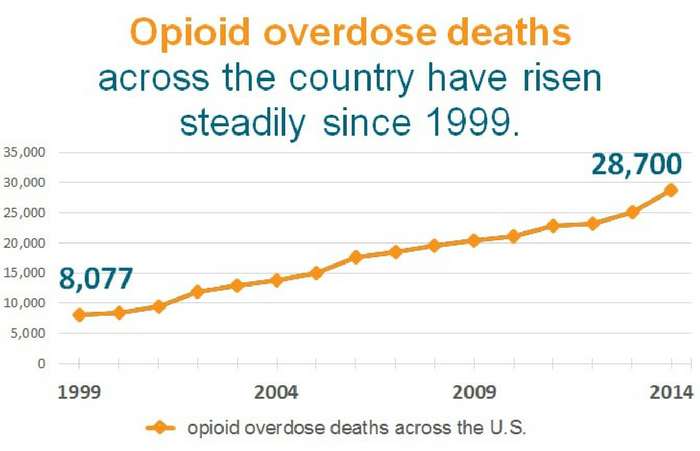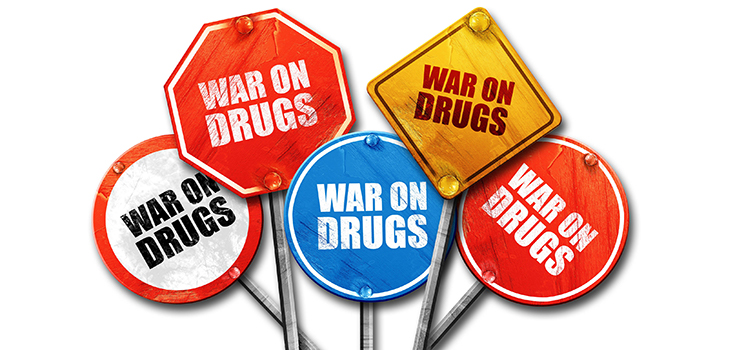On August 10, 2017, President Donald Trump declared the opioid crisis a national emergency in a move that many speculated he wouldn’t make. Only 2 days before the announcement, Trump vowed to “win” the fight on painkillers and heroin, but stopped short of declaring an emergency. [1]
On August 8, following a meeting with Trump, Health and Human Services secretary Tom Price said that such a declaration was unnecessary, but said that all options were on the table, including a declaration of emergency. [2]
It is unclear what sparked the reversal.
Speaking at his Bedminster, New Jersey, golf club, Trump said:
“The opioid crisis is an emergency, and I’m saying officially, right now, it is an emergency. It’s a national emergency. We’re going to spend a lot of time, a lot of effort and a lot of money on the opioid crisis.” [1]
The President called the crisis “a serious problem the likes of which we have never had.”
He added:
“You know when I was growing up they had the LSD and they had certain generations of drugs. There’s never been anything like what’s happened to this country over the last four or five years. And I have to say this in all fairness, this is a worldwide problem, not just a United States problem.”
 Source: MPR News
Source: MPR NewsKeith Humphreys, an addiction specialist at Stanford University who worked in the federal Office of National Drug Control Policy under Barack Obama, explained that 2 major actions will result from the national emergency declaration. [2]
“First, it lets states and localities that are designated disaster zones to access money in the federal Disaster Relief Fund, just like they could if they had a tornado or hurricane.”
According to Humphreys, the declaration will allow states and cities to request disaster zone declarations from the White House. In turn, these localities would be able to use federal funds for drug treatment, the overdose-reversal drug Naloxone, and other tools.
Humphreys said:
“Second, declaring an emergency allows temporary waivers of many rules regarding federal programs. For example, currently Medicaid can’t reimburse drug treatment in large residential facilities (16 or more beds). That could be waived in an emergency.”
Under the Obamacare replacement proposals backed by Trump, Medicaid funds for opioid addiction treatment would have been drastically cut.
An Excuse to Keep Fighting the War on Drugs?
The United States is undoubtedly in the grip of an unparalleled drug epidemic. In 2015, opioid overdoses killed nearly 35,000 people in the U.S., according to the National Institute on Drug Abuse (NIDA). [1]
By contrast, a study published August 7, 2017, found that mortality rates were 24% higher for opioids and 22% higher for heroin than had been previously reported. [2]
However, proponents of a public health-centered approach to the crisis epidemic worry about the potential ramifications of what powers an emergency declaration would grant an administration that favors tough-on-crime law enforcement tactics.
Grant Smith of the Drug Policy Alliance said:
“We need to be cautious about the intentions of this administration. An emergency declaration can be used for good. It can help free up federal resources, help prioritize responses by the federal [government], help give the administration leverage to request legislation from Congress.”
Or, in the worst case scenario:
“…all of those things I just mentioned could be used to further the war on drugs. It could give the administration leverage to push for new sentencing legislation. Or legislation that enhances [drug] penalties or law enforcement response. It could give [Attorney General Jeff] Sessions more leverage to push the agenda that he has been pushing,” Smith warned.
In 2016, as part of the 21st Century Cures Act, Congress approved $1 billion in funding over 2 years for state grants to tackle the opioid epidemic. Nevertheless, recent federal estimates suggest opioid overdoses increased last year, even as opioid prescriptions decreased.
Sources:
[1] NBC News
| Julie Fidler is a freelance writer, legal blogger, and the author of Adventures in Holy Matrimony: For Better or the Absolute Worst. She lives in Pennsylvania with her husband and two ridiculously spoiled cats. She occasionally pontificates on her blog. | |

No comments:
Post a Comment